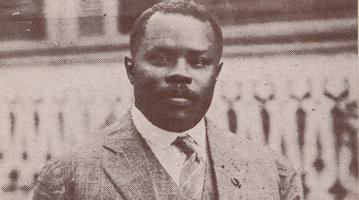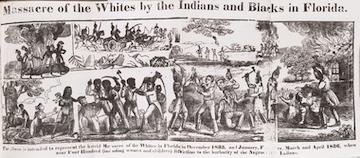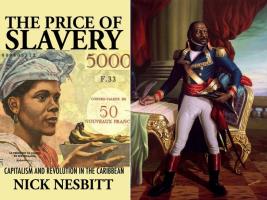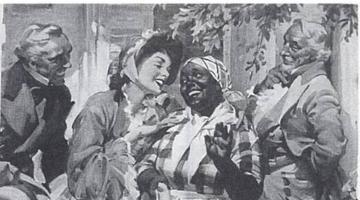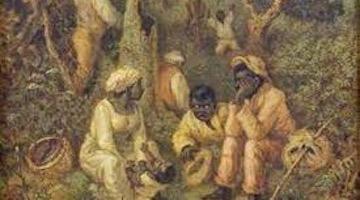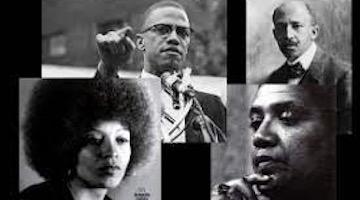BAR Book Forum: Caroline H. Yang’s Book, “The Peculiar Afterlife of Slavery”
In this series, we ask acclaimed authors to answer five questions about their book. This week’s featured author is Caroline Yang. Yang is Associate Professor of English at University of Massachusetts, Amherst. Her book is The Peculiar Afterlife of Slavery: The Chinese Worker and the Minstrel Form.
Roberto Sirvent: How can your book help BAR readers understand the current political and social climate?
Caroline Yang: Before I answer this question, I want to thank BAR for featuring my book. As a big fan, I’m very honored to be in the company of thinkers I truly respect. The title of my book, The Peculiar Afterlife of Slavery, is a reference to Saidiya Hartman’s characterization of our present moment as the “afterlife of slavery,” by which she means that Black freedom and lives continue to be in peril. My book explores how the antiblack logic of slavery, seen glaringly in not just performances of blackface minstrelsy but also the minstrel form that survived beyond the stage, lived on in representations of Chinese workers in U.S. literature during and after Reconstruction. The current attack on “critical race theory” aptly exemplifies the refusal to come to terms with racial slavery of the U.S. past and the ways that it continues to shape how we think about race in this country today. A concrete example is someone like Rep. Chip Roy, one of the House representatives who introduced legislation in May of this year opposing critical race theory being taught in schools. In March, during a congressional hearing in the aftermath of the mass shooting in Atlanta, where six of the eight victims were Asian woman, Roy had called for Texas-style justice, which was to “find all the rope in Texas and get a tall oak tree.” He then vilified the Chinese Communist government as the real “bad guys,” and remarkably accused them of practicing “modern-day slavery.” Roy’s statements could have been straight out of the congressional debates during Reconstruction, in which lawmakers argued that Chinese workers were “slave-like” and therefore deserving of legal exclusion and discrimination while sanctioning antiblack terror against Black people through practices like lynching. They also demonstrate how most people in the United States wouldn’t understand the anti-Asian racism during the COVID pandemic or the hypersexualization of Asian women as being related to the continued imperilment of Black lives—which is precisely why critical race theory is necessary. This obscurity is part of the afterlife of slavery, which my book attempts to make more transparent.
What do you hope activists and community organizers will take away from reading your book?
I like this question a lot. How does my book potentially contribute to the work that’s already being done to bring about social change? Again, I hope it’s through adding to historical knowledge and connections that have been made obscure. But, at the same time that I show that the racism against Chinese workers after emancipation was linked to the United States’s failure to reckon with slavery, I want to emphasize that anti-Asian racism and antiblackness are not commensurable. The racialization of the two groups was relational and comparative but not comparable. So to say that anti-Asian racism is like antiblackness is to discount the specificity of the violent racism against both groups. For example, something like the Chinese Exclusion Act did not apply to African Americans, and Asians were not enslaved in the United States. The latter is a huge distinction. For me, what might be more productive, especially for coalitional politics, would be to think about anti-Asian racism specifically and relationally with antiblackness. I hope the specific histories that I trace in my book contributes to activism in resistance to the larger frameworks of U.S. empire and settler colonialism and the conditions they engender for different peoples.
We know readers will learn a lot from your book, but what do you hope readers will un-learn? In other words, is there a particular ideology you’re hoping to dismantle?
Yes, I want to challenge the story that the U.S. empire tells about itself, as a land of freedom, progress, and opportunities. Specifically, the United States touts itself as a land of immigrants, which glosses over the histories of settler colonialism, slavery, and legal exclusion of Asians, particularly Asian workers. Asian Americans are often seen as model immigrants and are thought of as newcomers to this country, but what is not widely known is that this is because there have been immigration laws specifically barring their entry until the middle of the twentieth century. By situating the history of Chinese workers alongside the history of slavery, I also want to challenge the capitalist narrative of meritocracy and place antiblackness squarely at the center of U.S. history.
Who are the intellectual heroes that inspire your work?
I have so many, but I’ll limit my answer to two for now. My first, which may be obvious, is Saidiya Hartman. Without her groundbreaking book, Scenes of Subjection, as well as all her subsequent writings, my book couldn’t exist. When I first started reading about blackface minstrelsy, I was disheartened, though not surprised, that historically, it was mostly white men who had been writing about it. There was a sense of lightness in some of the writings, especially the earlier ones, which I understood to be possible because of how the writers felt about slavery. For me, Hartman’s book is the authority in how we should think about slavery and minstrelsy, and it is such a resounding refutation to some of the racist scholarship on blackface. Imagining my book in conversation with hers gave me the courage to keep going, toward the goal of transforming the field. Also, on top of her influential written work, she is the model of the kind of scholar and mentor I want to be. I was lucky to have met her at a conference and introduced myself to her, and she was beyond generous and gracious in engaging with my work.
My second answer is related to my next book, tentatively titled The Korean War in Black America. I’ve been reading Paul Robeson’s monthly newspaper Freedom (1950 – 1955) for this project, and all the intellectuals and writers associated with the paper in addition to Robeson—Lorraine Hansberry, W. E. B. Du Bois, Lloyd Brown, Eslanda Goode Robeson, Shirley Graham Du Bois, Alice Childress, and so on—are so inspirational in their imaginings of peace and freedom in opposition to U.S. empire’s endless wars abroad and at home against Black lives.
In what way does your book help us imagine new worlds?
As my book’s main object of analysis is literature, I truly believe in the transformative power of literature and other arts to help us imagine a different future. Just as the white authors I examine, such as Bret Harte and Mark Twain, were influential in defining what it meant to be “American” through their representations of the “West,” I think the writers of color, such as Sui Sin Far and Charles Chesnutt, who conclude my book, can help us imagine what else was possible during this time – what could have been and what could be. Because the idea of what freedom is has been so central in African American literature, especially, I think we can learn a great deal from how it’s been imagined by Black writers and how that imagination is counter to the supposed freedom granted by the state.
Roberto Sirvent is editor of the Black Agenda Report Book Forum.

